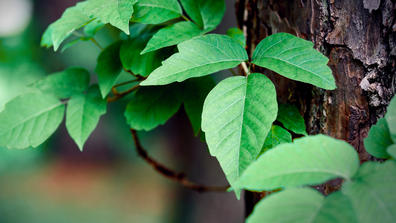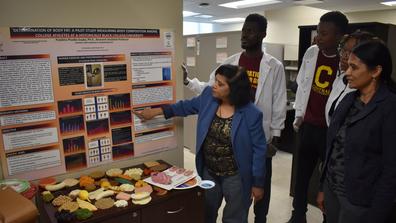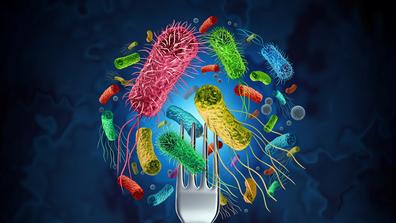Sustainable agriculture: Six questions for the researcher

TreMia Hutcheson, of the Bahamas, is a junior at Central State University majoring in Agriculture Education with a minor in Sustainable Agriculture. She recently responded to a list of questions from Central State University Land-Grant communications and media specialist Cyril Ibe about her goal to return to her home country to help make it more food-sufficient through sustainable agriculture. Her answers have been lightly edited for clarity.
Q: Who are your research professor mentors, and what role do you play in their research?
A: My research mentors are Dr. Luke Farno and Dr. Mark Campbell. In their research, I assist them with lab functions (in the corn seed lab), and I sometimes have been given a project to learn about lab equipment and tell them what I've learned about them.
Q: Describe how you feel contributing to the research that you do, which is meant to solve society's problems and improve humanity.
A: I feel like I have made good progress. I don't feel pressure or constricted in the environment that I am in. I feel very nurtured and very encouraged. So, if there is a question that I want to ask, or if there's a project that I'm interested in, they would take the time out to give their insight or give their advice and help.
Q: In what ways has Central State University helped to fund your education — through scholarships or any other forms of help?
A: I am currently on a Public Scholar Program Scholarship. That is a scholarship where Central State pays for half of the cost of my education, and the government of the Bahamas pays the other half. So, I am basically going to school for free. On top of that, I do get a (stipend) from working here in the lab. It’s a good opportunity, especially when it comes to furthering my education and not having to pay out of pocket or be in debt.
Q: From a student’s perspective, why do you think companies and businesses should contribute money to make Central State University grow stronger as a research institution?
A: I think they should invest money, especially in promoting Central State because I think there are not many brown and Black people in agriculture. I will give you an example. I was awarded another scholarship on behalf of Central State University. It was a $1,000 scholarship. And when I walked into the room to receive the scholarship, I was surrounded by people who didn’t look like me. And for me, that was a shock.
I didn't realize that the agricultural industry was a very, very white-male-dominated industry.
So I think by companies investing in Central State University, they can help diversify the field to encourage more students of color to get into agriculture so that we, as a community, can grow stronger.
Q: Are you inspired or motivated in any way from your experience as an undergraduate research assistant to think of possibly becoming a science researcher?
A: I am. I definitely am.
Q: You are from the Bahamas. After you get all the education — about plants or agriculture — what do you plan to do with it after you return to the Bahamas?
A: Right now, we have a very weak agricultural industry in the Bahamas. So, my main goal is to strengthen that through education, research, and innovative ways on how we could use the little spaces that we have (as a nation of islands) and produce the most food that we need or at least try to sustain ourselves in some way. I think importing almost 90% of the food we consume is unacceptable. But you know, it takes innovative minds to change that.
I am ready to be a part of that change.


